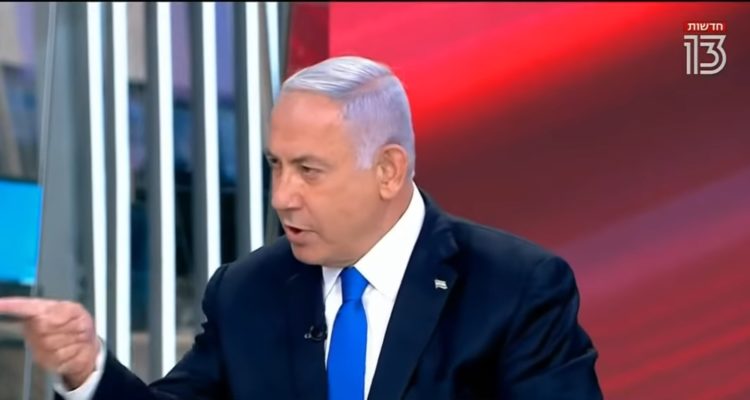Iran will comply only if there is a “credible military threat and severe sanctions,” the prime minister said.
By Paul Shindman, World Israel News
Prime Minister Benjamin Netanyahu said Thursday that he spent a significant time during his recent phone conversation with President Joe Biden discussing Iran, making it clear to the new American leader that Israel could take no chances when it comes to the Islamic Republic’s nuclear ambitions.
“Biden and I are close friends, we talked a lot about Iran, for a whole hour,” Netanyahu said in an interview on Channel 13. “I do not leave the security of Israel in the hands of anyone … I will never abandon Israel’s security in the hands of others,” he stressed.
“I told him – with or without an agreement, my duty as Prime Minister of Israel is to prevent the recurrence of atrocities committed against our people,” Netanyahu said.
Iranian leaders have for decades stated openly they seek the destruction of Israel, with its military commanders saying their goal is the “the full annihilation of Israel.”
“There is a regime here that has engraved our destruction on its banner, and I am doing everything in my power to prevent it from arming itself with nuclear weapons, including anything necessary,” Netanyahu said. “I told him that relying only on an agreement with such a country was a mistake.”
Israel has been pressing the United States not to give in to Iranian pressure to return to the agreement that former President Donald Trump abandoned in 2018 in favor of tough sanctions.
Netanyahu said his message to Biden is that Iran’s quest for nuclear weapons should not be lumped in with other regional issues and that a signed agreement with Iran was insufficient to hold back the rogue regime.
“The two things that will slow Iran from advancing to nuclear weapons are a credible military threat and severe sanctions,” Netanyahu said. “We never drop the military threat; regarding sanctions – it largely depends on it.”





